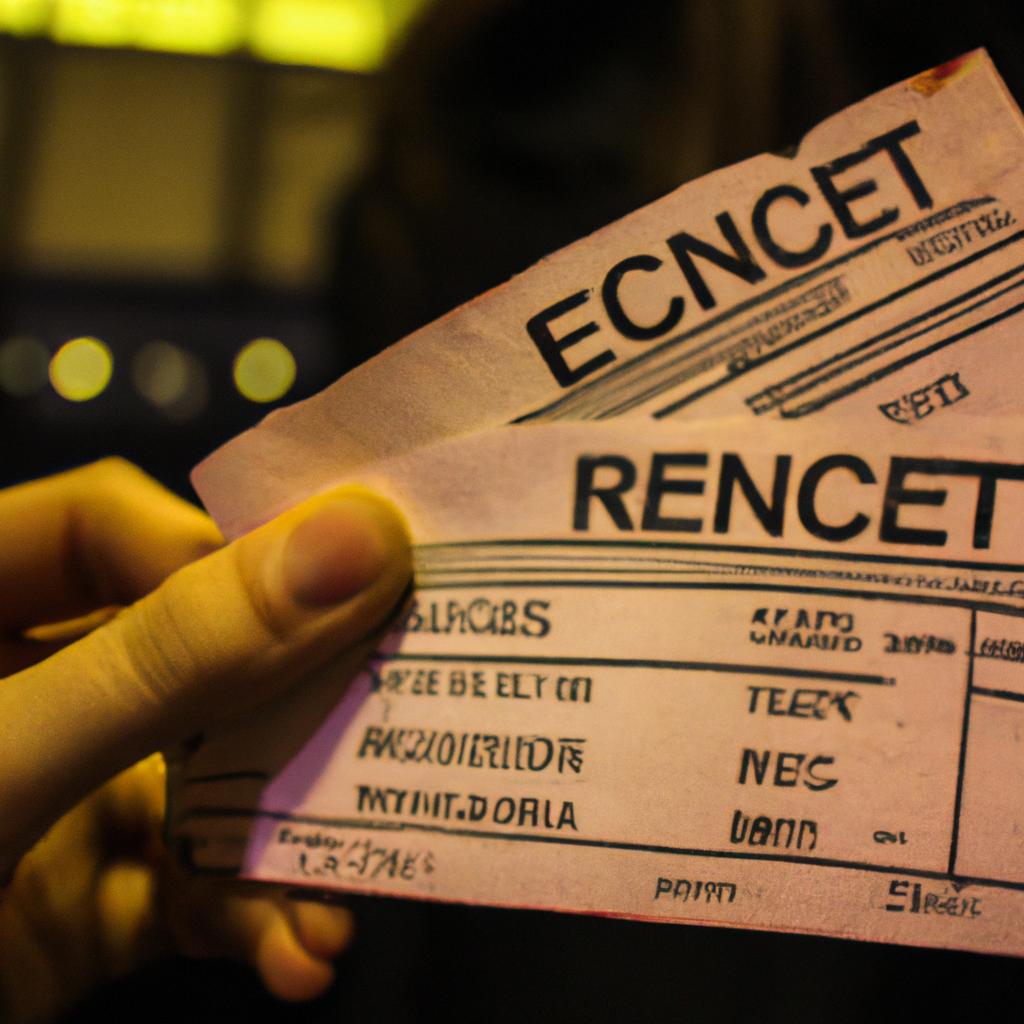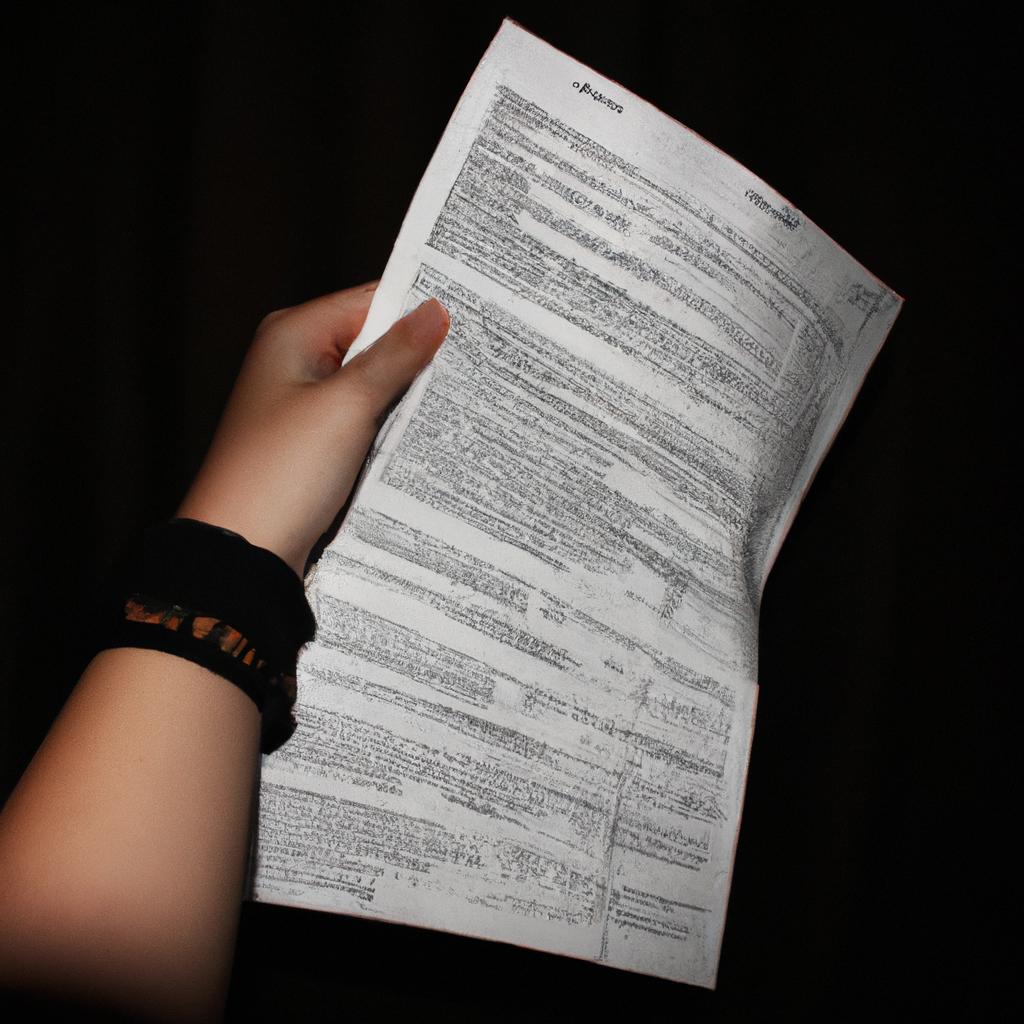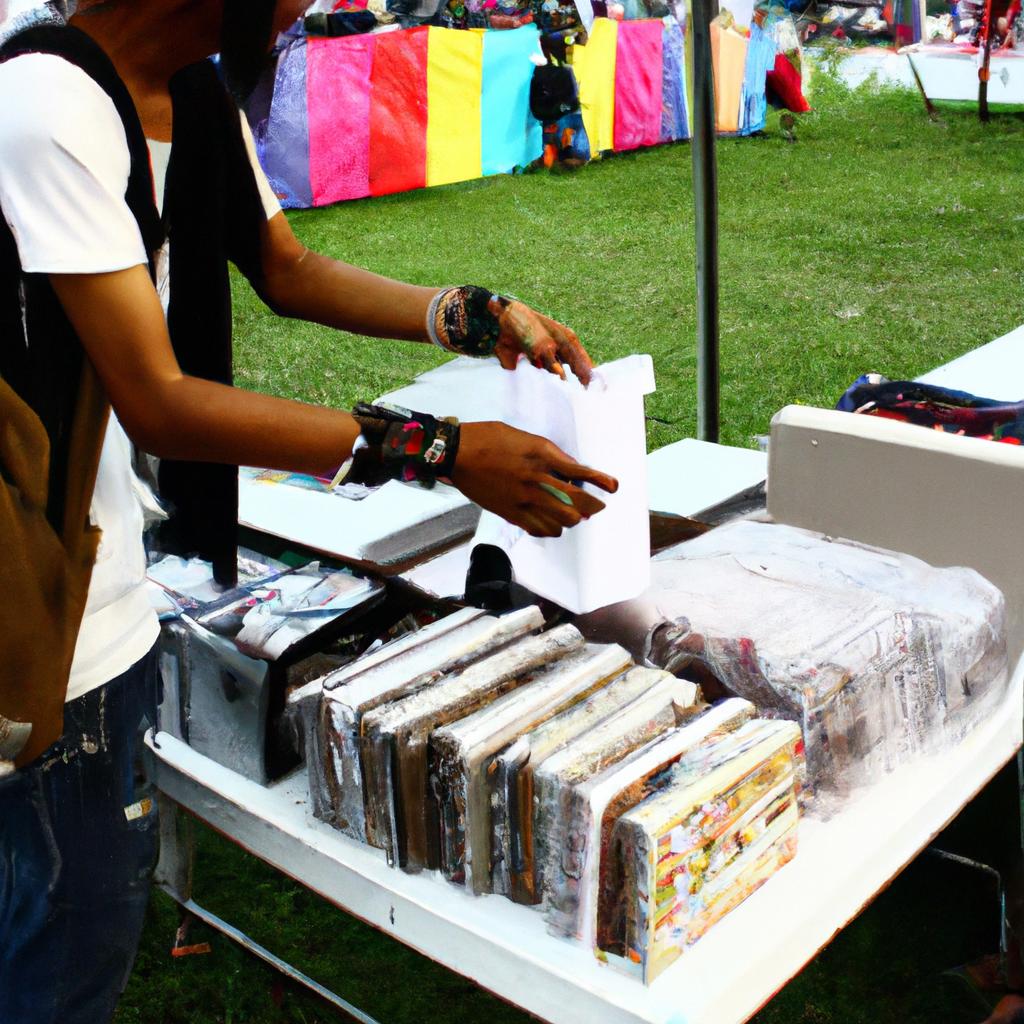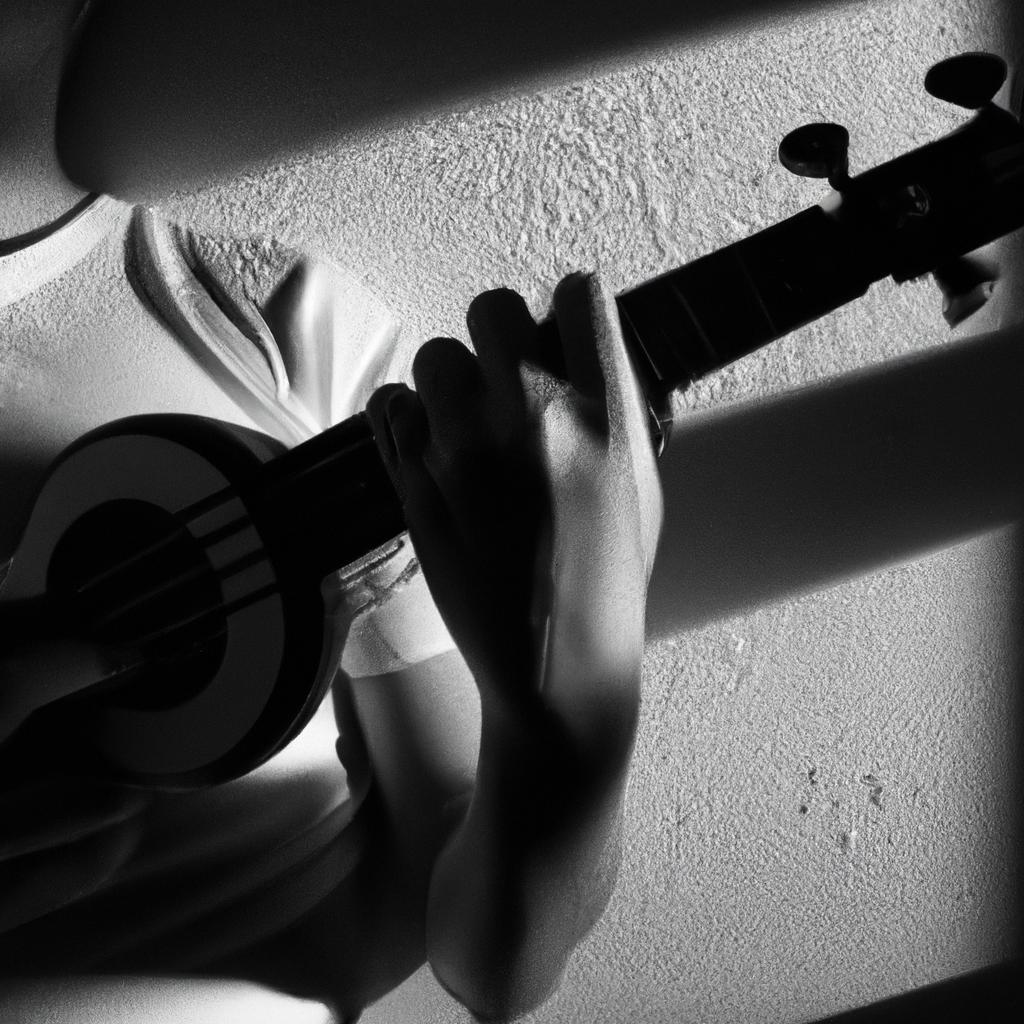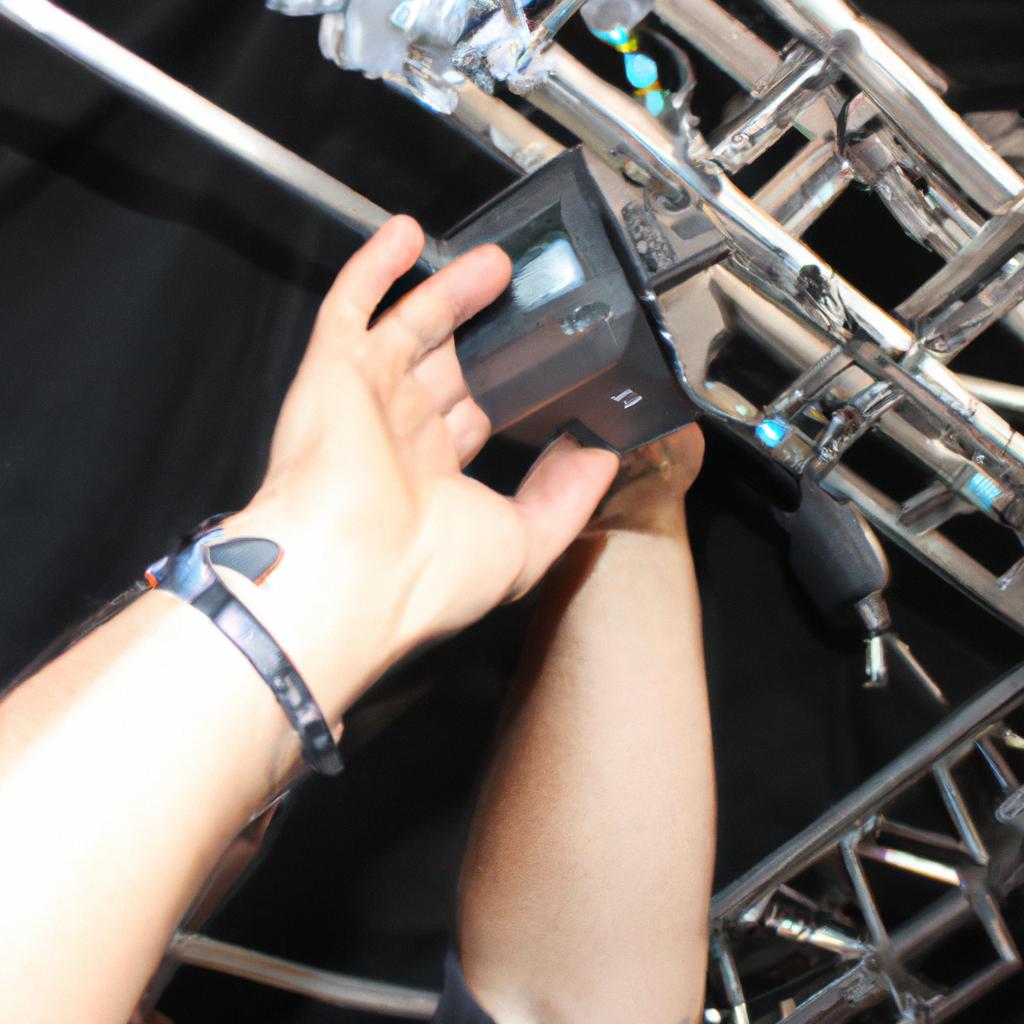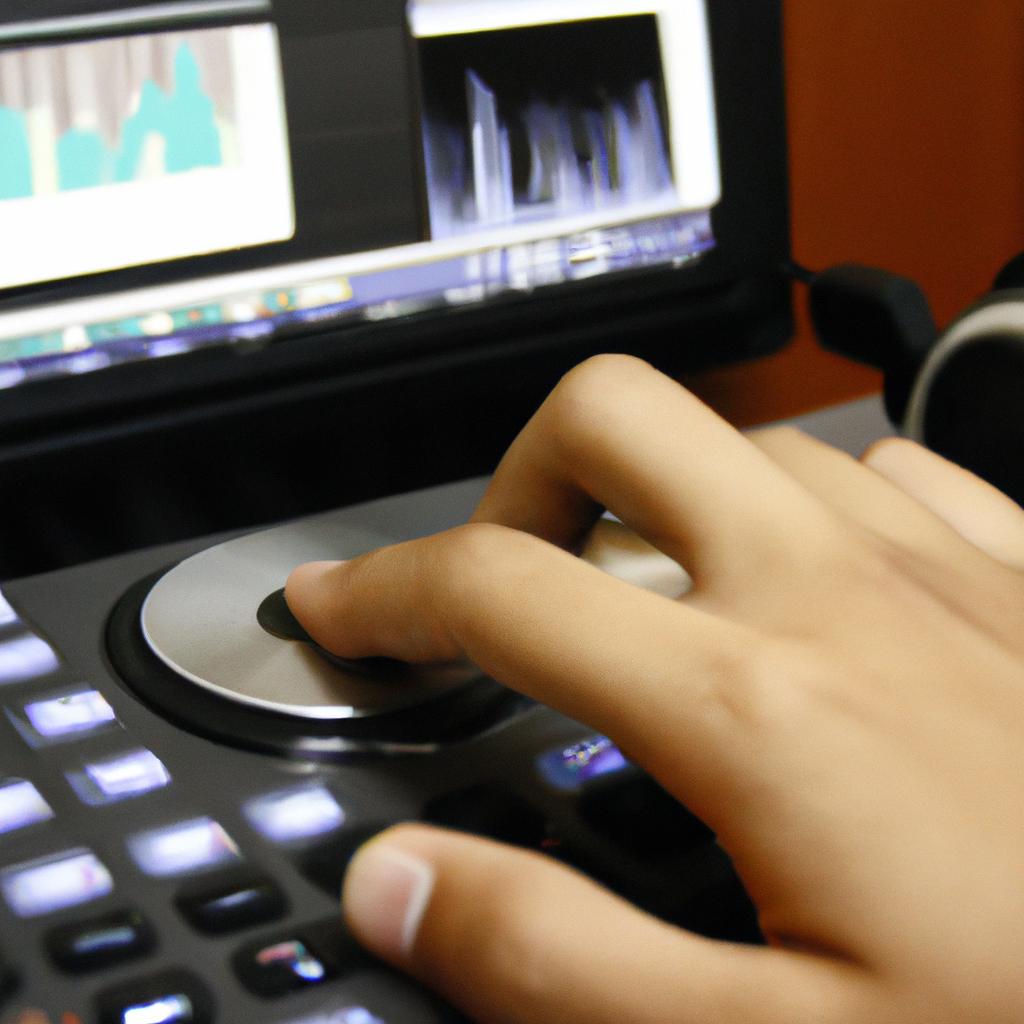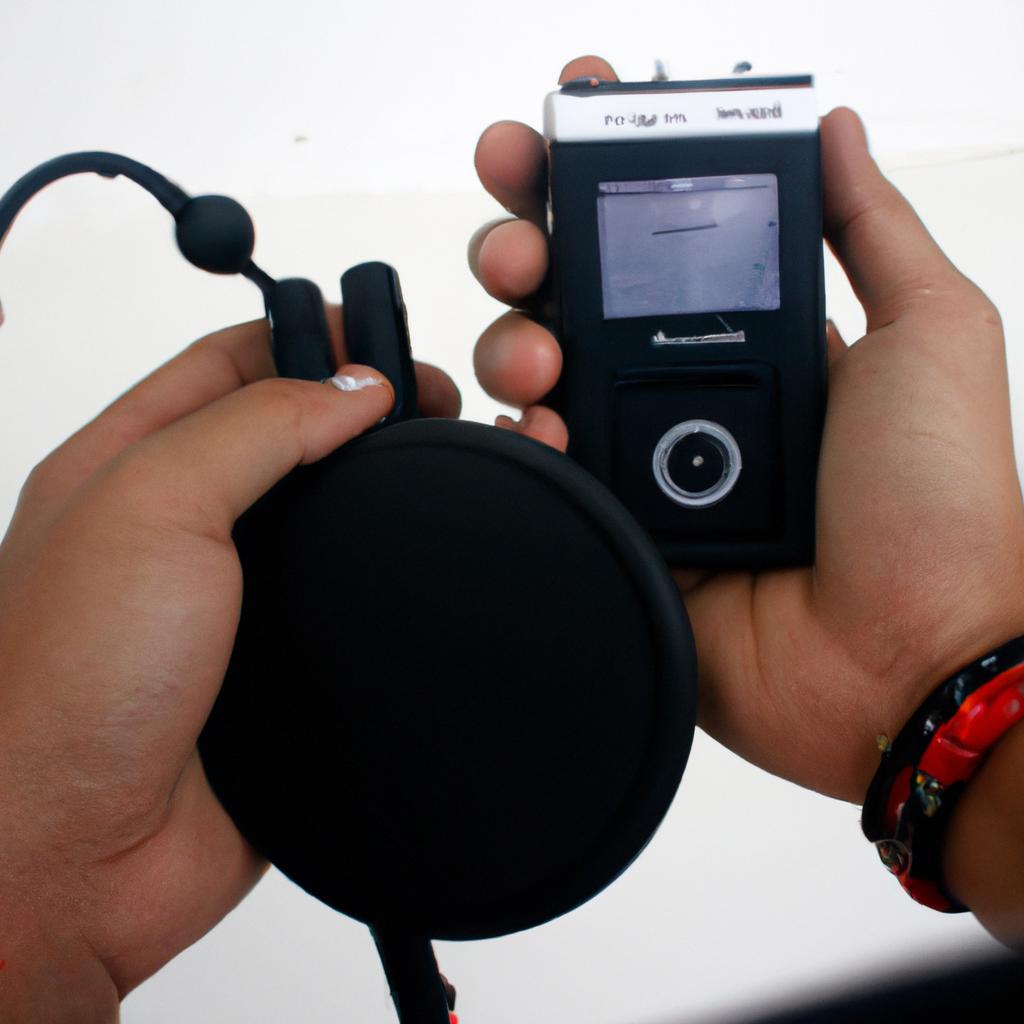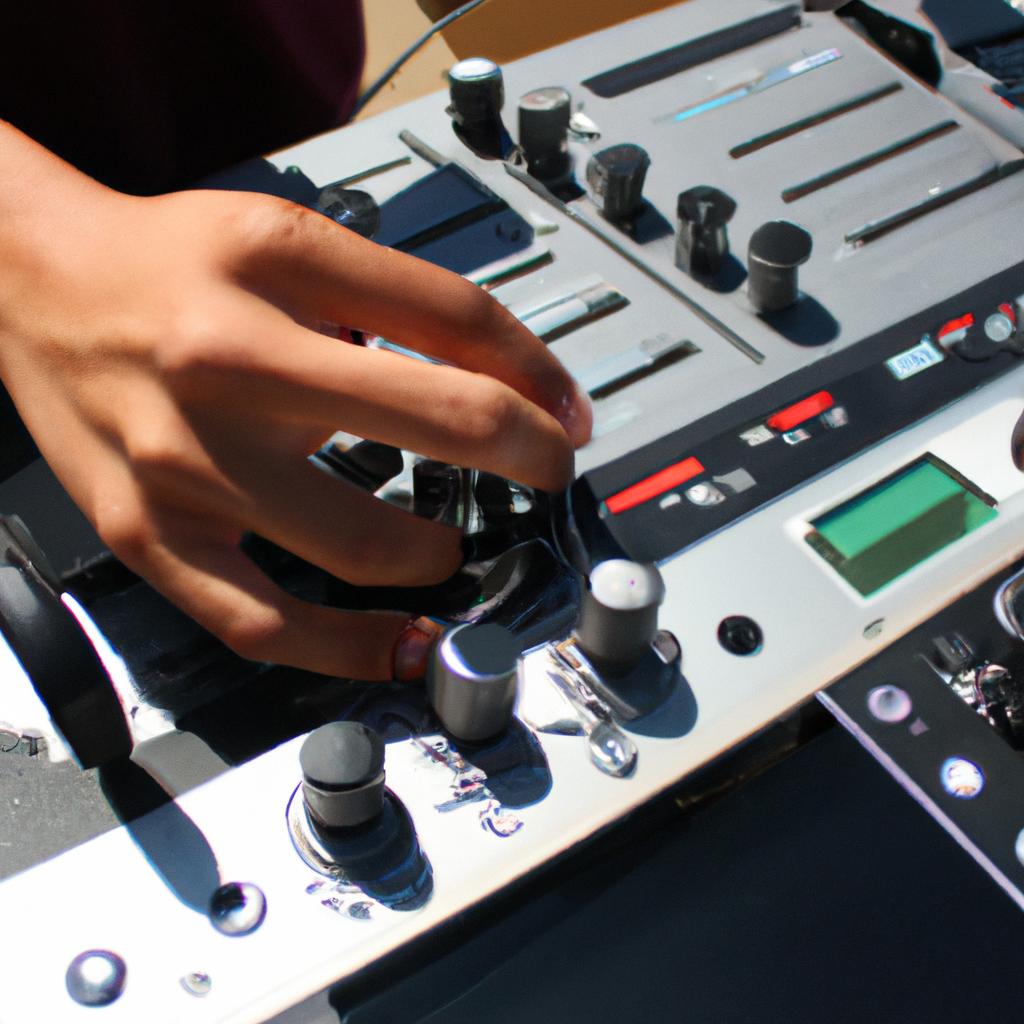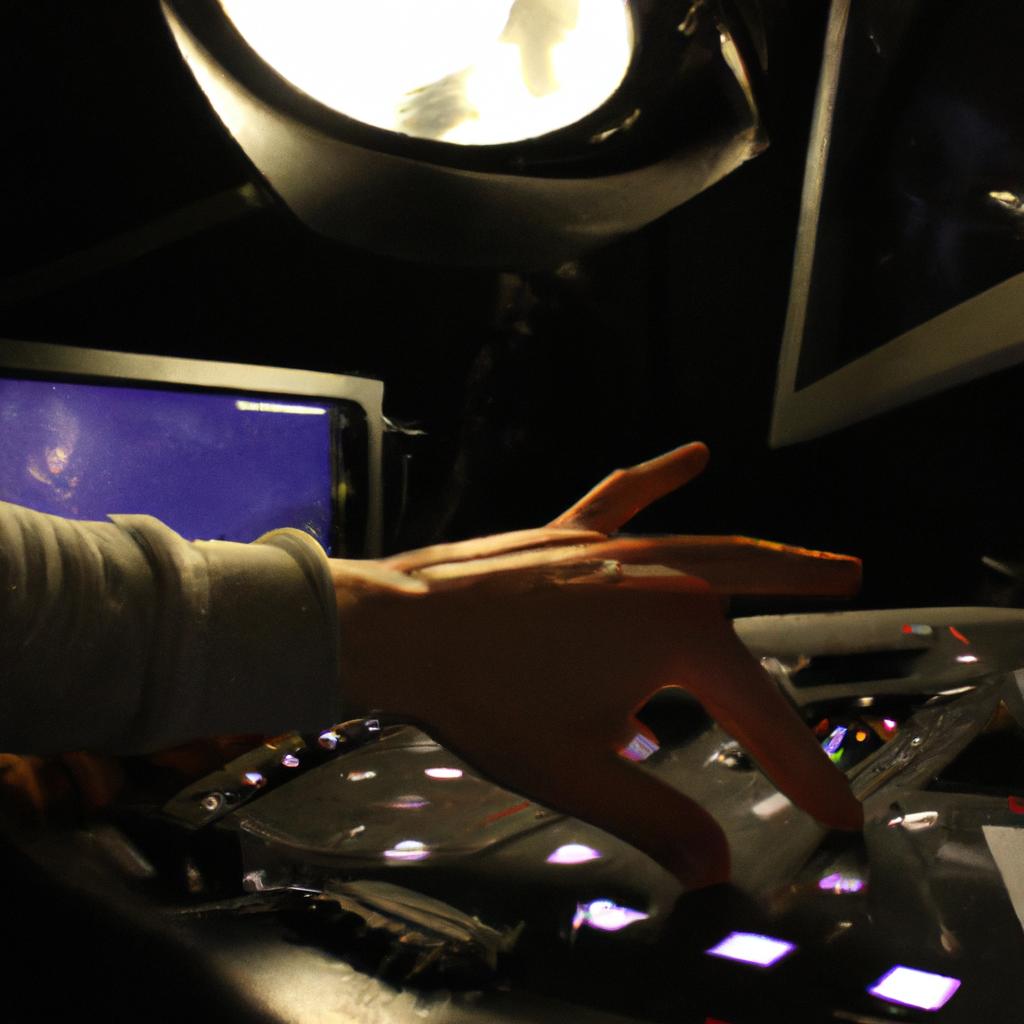Concert ticket prices have long been a subject of curiosity and debate among music enthusiasts. From the excitement of witnessing favorite artists perform live to the financial considerations involved, understanding the factors that contribute to ticket pricing is crucial for both fans and industry professionals alike. This article aims to delve into the realm of sound and vision by revealing the intricate mechanisms behind concert ticket prices.
To illustrate this complex landscape, let us consider a hypothetical scenario where two popular musicians are scheduled to perform in the same city on consecutive nights. Despite their comparable fame and popularity, one artist’s tickets are priced significantly higher than the other’s. This raises questions: What influences these discrepancies? Are they driven solely by market demand or do other variables come into play? By exploring various aspects such as venue capacity, production costs, artist fees, and externalities like scalping and secondary markets, we can begin to unravel the intricacies that shape concert ticket prices.
By shedding light on how concert ticket prices are determined, this article seeks to provide readers with valuable insights into an often opaque aspect of the music industry. Understanding these dynamics can empower consumers to make informed decisions when purchasing tickets while also fostering discussions around affordability and accessibility within the realm of live performances. In doing so, it is hoped that this article will contribute to a more transparent and equitable concert ticket pricing system that benefits both artists and fans alike.
The Rising Trend of Ticket Prices
The Rising Trend of Ticket Prices
Ticket prices for concerts have been on the rise in recent years, with a noticeable increase across various genres and artist popularity. This trend can be attributed to several factors that contribute to the overall cost of attending live music events.
One example illustrating this rising trend is a popular rock band’s concert tour last year. Tickets for their shows were initially priced at $50 but quickly sold out due to high demand. As a result, tickets appeared on resale platforms, such as StubHub and Viagogo, where prices skyrocketed up to $300 per ticket. This case highlights how scarcity drives up costs in the secondary market when primary sales are unable to meet consumer demands.
There are several reasons behind the increasing ticket prices:
- Artist fees: Artists who have achieved significant success or have a large following often charge higher fees for their performances.
- Production costs: Concerts today come with elaborate stage set-ups, special effects, and advanced audiovisual technologies that enhance the overall experience. These additional production elements contribute significantly to the total cost of organizing a concert.
- Venue expenses: Renting venues suitable for hosting large-scale concerts can be expensive, especially if they offer top-notch facilities and amenities.
- Market demand: High demand for certain artists or bands creates an opportunity for event organizers to raise ticket prices based on what consumers are willing to pay.
To further illustrate these points, consider the following table showcasing average ticket price increases over recent years:
| Year | Average Ticket Price (USD) |
|---|---|
| 2016 | $75 |
| 2017 | $85 |
| 2018 | $100 |
| 2019 | $120 |
As observed from this data, there has been a consistent upward trajectory in average ticket prices over time. Such trends may evoke frustration among potential concert-goers who find it increasingly difficult to afford attending their favorite live shows.
As seen in the rising trend of ticket prices, several factors contribute to this phenomenon. In the subsequent section, we will explore the various aspects that influence concert ticket costs and shed light on how these factors can be better understood.
Factors Affecting Concert Ticket Costs
As we have explored the rising trend of concert ticket prices, it is now crucial to delve into the various factors that contribute to these costs. By understanding these elements, we can gain insight into why tickets are priced as they are and how this impacts both artists and audiences alike.
Factors Affecting Concert Ticket Costs:
To illustrate the complexities surrounding concert ticket pricing, let us consider a hypothetical case study involving a popular music artist planning a world tour. This allows us to examine the interplay between different variables impacting ticket prices:
-
Artist Popularity:
- Established artists with large fan bases often command higher ticket prices due to their high demand.
- Emerging artists may set lower initial prices to attract new fans or fill smaller venues.
-
Production Expenses:
- Elaborate stage setups, visual effects, and intricate sound systems contribute significantly to production expenses.
- These costs are typically factored into ticket prices to ensure quality performances.
-
Venue Capacity:
- Smaller, intimate venues tend to offer limited seating capacity resulting in higher demand for tickets.
- Larger arenas or stadiums allow for more attendees but may entail increased operating costs.
-
Market Forces:
- Economic conditions, geographic location, and local competition influence market dynamics, leading to varying price ranges across regions.
Table Example (Concert Ticket Pricing Comparison):
| Artist | Venue | Price Range ($) |
|---|---|---|
| Artist A | City Theater | $50-$100 |
| Arena | $75-$150 | |
| —————– | ————————— | ——————– |
| Artist B | Small Club | $30-$60 |
| Outdoor Amphitheater | $60-$120 | |
| —————– | ————————— | ——————– |
| Artist C | Stadium | $100-$200 |
- The soaring ticket prices may leave fans feeling excluded from experiencing their favorite artists live.
- Increased costs can limit accessibility to concerts for individuals with limited financial resources.
- Higher ticket prices might perpetuate a divide, where only those who can afford it have the privilege of attending such events.
- Fans may face disappointment if they are unable to secure tickets due to high demand and limited availability.
Understanding Dynamic Pricing Strategies:
By understanding the various factors influencing concert ticket pricing, we gain insight into how these strategies impact both performers and audiences. In the subsequent section, we will delve into dynamic pricing strategies employed by artists and event organizers to adapt their ticket prices in response to market conditions and demand.
With this comprehensive understanding of the factors at play, let us now explore the intricacies behind dynamic pricing strategies.
Understanding Dynamic Pricing Strategies
Introduction
In the previous section, we explored various factors that influence concert ticket costs. Now, let’s delve into the fascinating world of dynamic pricing strategies employed by event organizers to determine ticket prices. To illustrate this concept, consider a hypothetical case study involving a popular music artist planning their highly anticipated world tour.
Case Study: Music Artist World Tour
Imagine that an internationally acclaimed music artist is preparing for a series of concerts across different cities worldwide. The artist and their management team are faced with the challenge of setting ticket prices in a way that maximizes revenue while ensuring fan affordability and overall attendance.
Dynamic Pricing Strategies
To achieve these goals, event organizers often adopt dynamic pricing strategies. These strategies involve adjusting ticket prices based on several key variables. Here are some common factors considered:
- Demand: Ticket prices may increase or decrease depending on the demand for specific shows or locations.
- Timing: Prices can vary throughout different phases of ticket sales, such as early bird discounts or last-minute deals.
- Seating Sections: Different sections within the venue may have varying price tiers, reflecting differences in view or proximity to the stage.
- Special Offers: Promotional offers like bundled merchandise or VIP experiences can be included at premium price points.
| Factors Considered | Impact on Ticket Price |
|---|---|
| High Demand | Increased |
| Early Bird Discounts | Decreased (initially) |
| Premium Seating | Higher |
| Bundled Packages | Potentially higher |
Table 1: Factors influencing ticket price
These dynamic pricing strategies aim to strike a balance between maximizing revenue potential and accommodating diverse consumer preferences and budget constraints.
The Impact of Scalping and Resale Markets
As we explore further in the subsequent section about “The Impact of Scalping and Resale Markets,” it becomes evident that dynamic pricing strategies are not without their challenges. The emergence of secondary ticket markets and unauthorized resale platforms has introduced new complexities to the pricing landscape, impacting both event organizers and consumers alike.
By understanding the intricacies of dynamic pricing strategies, we gain insight into how concert ticket prices can fluctuate based on demand, timing, seating sections, and special offers. However, as we will soon discover in the next section, scalping and resale markets pose significant obstacles for maintaining fairness and affordability within the industry.
The Impact of Scalping and Resale Markets
Understanding Dynamic Pricing Strategies has shed light on the various factors that influence concert ticket prices. Now, let’s turn our attention to the impact of scalping and resale markets on these prices.
Imagine a popular band announcing a highly anticipated tour. Within minutes of tickets going on sale, they are sold out. Frustrated fans who missed out turn to secondary market platforms where resellers offer tickets at significantly inflated prices. This scenario is all too common in today’s music industry, highlighting the prevalence and consequences of scalping and resale markets.
To fully grasp the implications, consider the following:
- Scalpers exploit high demand: Scalpers take advantage of limited supply and high demand by purchasing large quantities of tickets during primary sales and reselling them for exorbitant prices. This practice often leaves genuine fans unable to afford attending their favorite artists’ concerts.
- Ethical concerns arise: The emergence of ticket bots further exacerbates the issue as automated programs can rapidly purchase thousands of tickets within seconds, leaving little chance for regular consumers to secure seats at face value prices.
- Economic inequality widens: The inflated costs associated with scalped tickets contribute to economic inequality within the live music realm. Affluent individuals may be willing to pay any price for an unparalleled experience while less privileged fans struggle to access live performances due to financial constraints.
Let us now examine a table showcasing some notable examples of scalped ticket prices compared to their original face values:
| Concert | Original Face Value | Scalped Price |
|---|---|---|
| Artist X Live | $100 | $500 |
| Band Y Reunion Tour | $75 | $300 |
| Festival Z Weekend Pass | $200 | $800 |
This table serves as a stark reminder of how scalping distorts fair pricing structures, ultimately affecting both artists and fans alike.
In summary, scalping and resale markets have significant implications for concert ticket prices. The exploitation of high demand, ethical concerns regarding ticket bots, and the exacerbation of economic inequality all contribute to inflated costs on secondary market platforms. As we delve further into Comparing Ticket Prices across Genres, it becomes evident that these issues transcend specific artists or genres and require broader industry-wide solutions.
Comparing Ticket Prices across Genres
Imagine this scenario: a highly anticipated concert featuring a popular artist is announced, and fans eagerly await the sale of tickets. However, within minutes of their release, these tickets are sold out. Disappointed fans turn to secondary ticket markets where they find themselves confronted with exorbitant prices that far exceed the original face value. This situation exemplifies the impact of scalping and resale markets on concert ticket prices.
Case Study: Let us consider the case of a renowned musician who recently held a series of concerts across different cities. Despite efforts to combat scalping through strict purchasing limits and digital queues, it was discovered that a significant number of tickets were being resold at significantly higher prices on various online platforms. This phenomenon not only left many genuine fans unable to attend due to inflated prices but also acted as an impetus for further increases in ticket costs.
To better understand how scalping and resale markets influence concert ticket pricing, we can identify several key factors:
- Demand vs Supply: When demand exceeds supply for highly sought-after events, scalpers exploit this discrepancy by purchasing large quantities of tickets using automated software or employing teams of people. These purchased tickets are then resold at elevated prices.
- Lack of Regulation: In some jurisdictions, regulations surrounding ticket resale may be insufficient or nonexistent, allowing scalpers free reign over pricing strategies. This absence of oversight enables them to manipulate market forces and capitalize on fan enthusiasm.
- Fan Frustration: The inability to secure reasonably priced tickets can lead to frustration among genuine fans who feel cheated by unscrupulous individuals seeking financial gain rather than promoting fair access to live performances.
- Economic Impact: Exorbitantly priced tickets limit accessibility to concerts primarily for those with higher disposable incomes. Consequently, this socioeconomic disparity restricts cultural experiences and excludes certain demographics from participating in live music events.
To further illustrate the consequences of scalping and resale markets, consider the following table:
| Concert | Original Ticket Price (Face Value) | Resale Ticket Price |
|---|---|---|
| Artist A | $75 | $250 |
| Artist B | $100 | $500 |
| Artist C | $50 | $150 |
As shown above, ticket prices on secondary markets can soar to several times their original value. This stark difference demonstrates the impact of scalpers on concertgoers’ wallets.
In light of these challenges posed by skyrocketing ticket prices, it is crucial for fans to explore alternative options that allow them to attend concerts without breaking the bank. In the subsequent section, we will discuss some effective strategies and tips for finding affordable concert tickets.
[Transition Sentence] As fans navigate the complex landscape of concert ticket pricing influenced by scalping and resale markets, understanding how to secure reasonably priced tickets becomes paramount in ensuring a fulfilling live music experience.
Tips for Finding Affordable Concert Tickets
Next section H2 (transition): Understanding the Factors Influencing Concert Ticket Pricing
To gain a deeper understanding of concert ticket pricing, it is essential to explore the various factors that influence how much fans are expected to pay. By examining these factors objectively, we can shed light on the intricate dynamics behind setting ticket prices for live music events. In this section, we will delve into some key considerations that determine concert ticket costs.
Factors Influencing Concert Ticket Pricing:
-
Artist Popularity and Demand:
One significant factor influencing concert ticket prices is the popularity and demand for an artist or band. Renowned musicians with large fan bases often command higher prices due to their widespread appeal and limited availability. For instance, let us consider Taylor Swift’s recent tour where tickets were in high demand leading to increased pricing tiers based on seating locations. -
Venue Capacity and Amenities:
The size and amenities offered by a venue also play a role in determining ticket prices. Larger arenas or stadiums generally have more seats available, allowing for greater accessibility but potentially at lower price points. On the other hand, smaller venues with limited capacity may offer a more intimate experience but with higher-priced tickets as they cater to niche audiences seeking exclusivity. -
Production Costs:
Concerts involve various production elements such as lighting, sound systems, stage setups, pyrotechnics, and special effects. These additional expenses are factored into ticket prices to cover the costs associated with delivering an immersive audiovisual experience to attendees.
- Feeling exhilarated while being surrounded by thousands of passionate fans.
- The anticipation building up before seeing your favorite artist take the stage.
- The shared sense of connection when singing along to beloved songs together.
- Creating lasting memories through unforgettable live performances.
Table: Price Ranges for Concert Tickets
| Price Range | Description |
|---|---|
| Low | Affordable options for budget-conscious fans. |
| Mid-range | Moderate prices offering a balance between accessibility and quality. |
| High | Premium tier tickets with additional benefits, such as VIP access or exclusive merchandise. |
| Variable | Pricing that fluctuates based on demand, seating location, or package inclusions. |
By considering factors such as artist popularity, venue capacity and amenities, and production costs, concert organizers can determine ticket prices that reflect the value of the experience being offered. Understanding these factors provides insight into why ticket prices may vary across different genres and artists within the music industry.
Through this exploration, we have gained valuable insights into how concerts are priced and what influences those pricing decisions. So let’s dive in!

